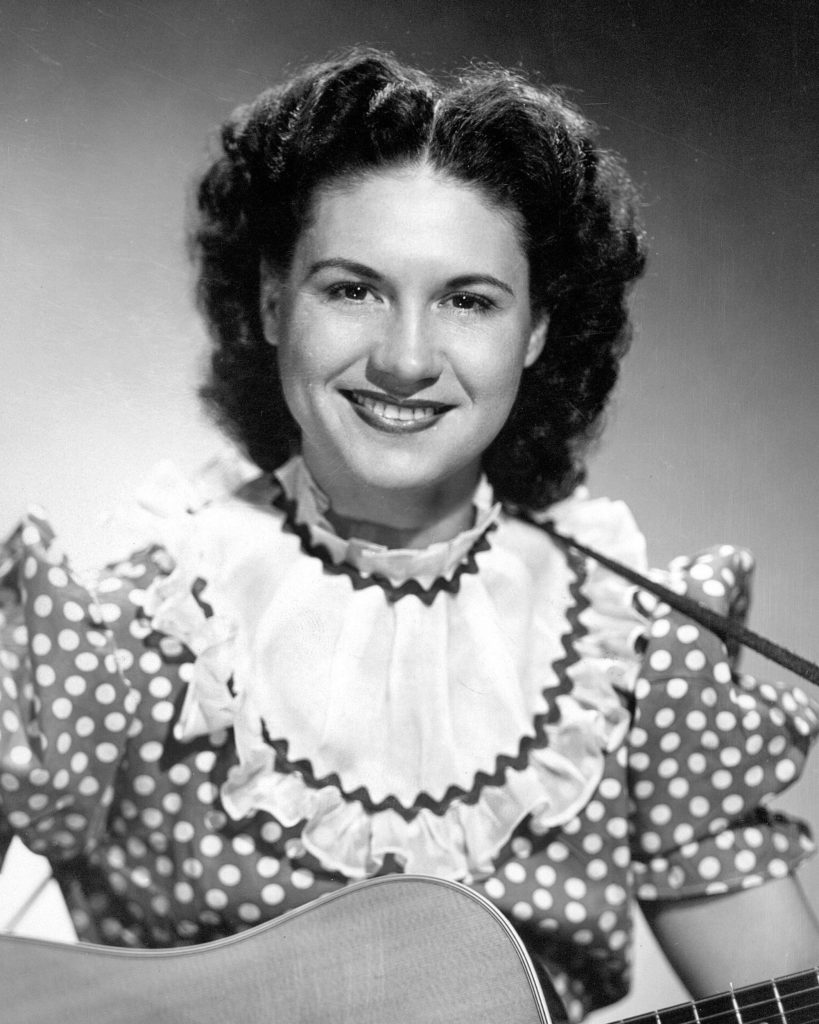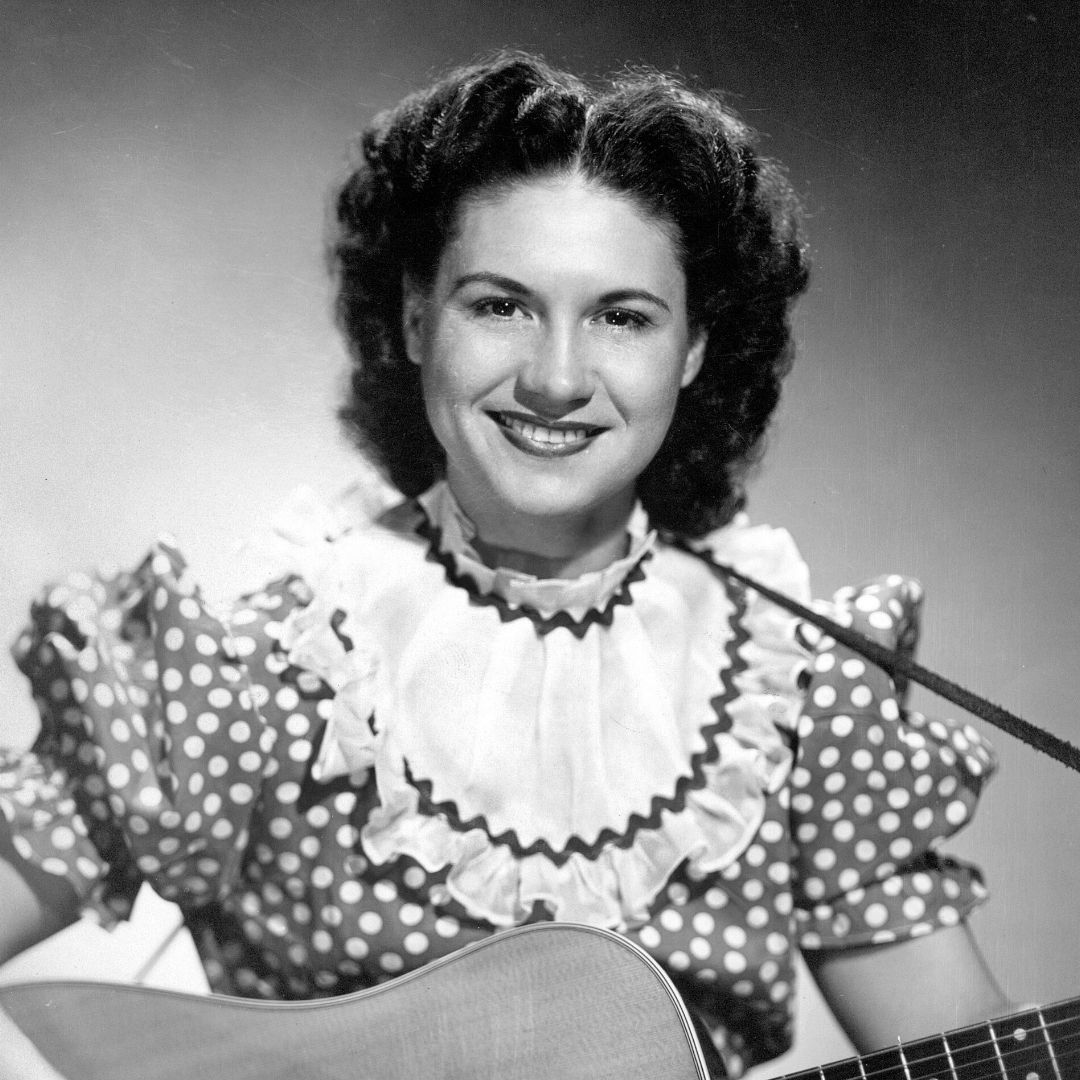“Scroll down to the end of the article to listen to music.”

Introduction
In the world of country music, certain songs don’t just make an impact; they leave a lasting legacy. “It Wasn’t God Who Made Honky Tonk Angels” is one such song. Released in 1952 by Kitty Wells, this groundbreaking piece not only broke records but also shattered long-held stereotypes. During a time when female voices in country music were scarce and mostly resigned to harmonies, Wells’ song stood out as a bold, unapologetic response to male narratives in country music. What makes this song fascinating is its origin as a direct rebuttal to Hank Thompson’s “The Wild Side of Life,” which blamed women for broken relationships. Kitty Wells’ response marked a turning point for women in country music, positioning her as a pioneer for female artists who followed.
About the Composition
- Title: It Wasn’t God Who Made Honky Tonk Angels
- Composer: J. D. Miller
- Premiere Date: 1952
- Album/Opus/Collection: Released as a single
- Genre: Country, Honky Tonk
Background
“It Wasn’t God Who Made Honky Tonk Angels” was written by J. D. Miller and recorded by Kitty Wells in 1952. The song was inspired by the controversial themes in Hank Thompson’s “The Wild Side of Life,” which lamented the perceived moral failings of a wayward woman. Wells’ song turned this narrative on its head, stating that it was, in fact, unfaithful men and a hypocritical society that were to blame. This was a daring perspective, especially in the conservative 1950s, and Wells took a risk in recording it. But it paid off, propelling her to fame and making her the first female solo artist to top the Billboard country charts. The song’s release was met with controversy, and some radio stations even banned it for its bold lyrics. However, the public’s response was overwhelmingly positive, cementing its place in country music history.
Musical Style
“It Wasn’t God Who Made Honky Tonk Angels” is rooted in the honky-tonk style, which features straightforward melodies, traditional country instrumentation, and an emphasis on storytelling. The song uses simple chord progressions and a steady rhythm, allowing Wells’ voice and the song’s message to take center stage. Unlike many songs of the era, which often romanticized infidelity, Wells’ delivery is sharp, clear, and unapologetic. Her vocal style—sweet yet firm—gives weight to the lyrics, making the song both memorable and powerful.
Lyrics Analysis
The lyrics are a direct rebuttal to male-centric songs that blamed women for the pitfalls of romance. With lines like “It’s a shame that all the blame is on us women,” Wells articulates the frustrations of women who have been unfairly judged for behaviors that were often spurred by male indiscretions. The song also criticizes the double standards of the time, making it a feminist anthem before the term was widely used in popular music. This lyrical defiance, paired with Wells’ gentle voice, creates a captivating contrast that forces listeners to confront the unfairness in the narrative.
Performance History
The song’s release and subsequent success made it a staple in Kitty Wells’ repertoire and a defining moment in her career. Despite being banned by certain radio stations, the song still climbed to number one on the country charts, making Wells the first female solo artist to achieve such a feat. This success proved there was a place for women’s perspectives in country music, and it opened the doors for future generations of female artists. “It Wasn’t God Who Made Honky Tonk Angels” became a signature piece for Wells, and she continued performing it throughout her career, solidifying its status as an iconic piece in her catalog.
Cultural Impact
The song’s influence reached far beyond the realm of country music. It not only challenged the gender norms of its time but also served as a precursor to the feminist movement in popular music. Artists like Loretta Lynn, Tammy Wynette, and Dolly Parton have all acknowledged Wells’ impact, citing her as a trailblazer for female empowerment in country music. The song has been covered by numerous artists over the years, each time reintroducing its powerful message to new audiences. It has also appeared in films and TV shows that explore themes of gender and society, making it a cultural touchstone.
Legacy
“It Wasn’t God Who Made Honky Tonk Angels” remains a classic in country music, and its message is still relevant today. It’s more than just a song—it’s a statement. It represents a time when women began to assert their voices in a genre dominated by men, and its success proved that audiences were ready to hear those voices. Kitty Wells’ brave choice to record this song paved the way for countless female artists who would follow in her footsteps. Even today, when women sing about heartbreak and resilience in country music, they owe a debt to this song and the path it carved.
Conclusion
“It Wasn’t God Who Made Honky Tonk Angels” is more than a song; it’s a piece of history. Its bold lyrics and Kitty Wells’ unflinching performance challenged the norms of its time, making it an anthem for women in country music. Whether you’re a long-time fan or a newcomer, this song is worth revisiting, not just for its musical charm but for the statement it made. For those interested in exploring its magic, the 1952 original recording by Kitty Wells is a must-listen. Enjoy its timeless melody and let its message resonate—because some truths, no matter how old, remain evergreen
Video
Lyrics
As I sit here tonight, the jukebox’s playing
The tune about the wild side of life
As I listen to the words you are saying
It brings mem’ries when I was a trusting wife
It was’t God who made honky-tonk angels
As you said in the words of your song
Too many times married men think they’re still single
That has caused many a good girl to go wrong
It’s a shame that all the blame is on us women
It’s not true that only you men feel the same
From the start most every heart that’s ever broken
Was because there always was a man to blame
It was’t God who made honky-tonk angels
As you said in the words of your song
Too many times married men think they’re still single
That has caused many a good girl to go wrong
